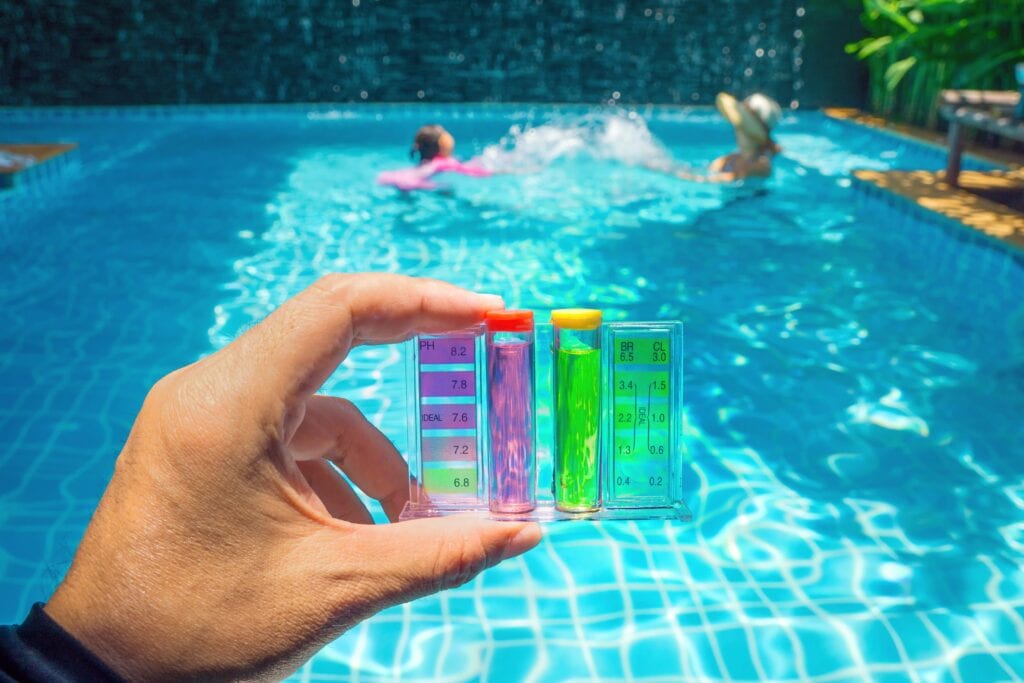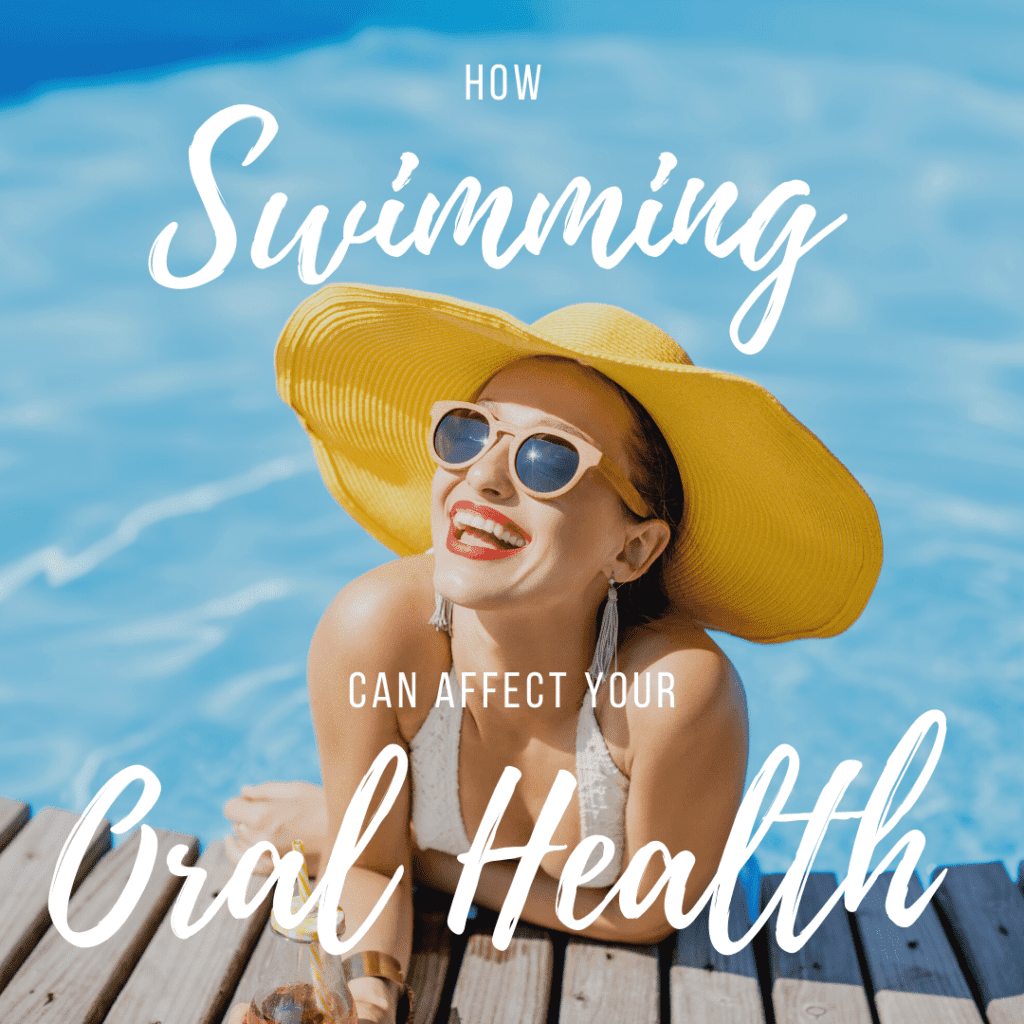Did you know that swimming can have a direct effect on your oral health? If you did not know this, don’t worry you are not alone. In fact, many people do not realize the effect that swimming can have on their oral health. In order to prevent swimming from having a detrimental effect on your oral health, it is important to know how swimming can affect you and what can be done to minimize the risk. Here is what you need to know:
Chlorine can threaten your oral health

Just about every swimming pool uses chlorine to kill bacteria and prevent water borne diseases. Although chlorine is essential, in large amounts it can threaten your oral health. This is because excess chlorine can accumulate on the surface of your teeth causing something known as swimmer’s calculus. Swimmer’s calculus is basically a buildup of chlorine that makes your teeth appear yellow. Unfortunately, since chlorine is slightly acidic it can also erode your tooth enamel. This makes your teeth more susceptible to decay and can cause tooth sensitivity.
In order to minimize the risk from chlorine, it is important to carefully regulate how much chlorine is in your swimming pool. If you are unsure about how much chlorine to add, then you should consult a professional to ensure that you are not over chlorinating your water. If you swim regularly, it is also important to schedule regular dental exams and cleanings to allow your dentist to properly care for your teeth. You will also need to mention that you are a frequent swimmer so that your dentist knows you may be at an elevated risk for certain conditions.
Risk of oral injury
While there is always some risk for an oral injury, this risk definitely increases when swimming. Generally speaking, recreational swimmers have a lower risk of oral injury, whereas competitive swimmers or swimmers engaging in watersports have a much higher risk of injury. For this reason, it is recommended to always wear a protective sports mouth guard when participating in any type of water sport. It is also recommended to practice poolside safety in order to minimize falls or other scenarios that could lead to an oral injury.
Scuba divers can experience barodontalgia
Barodontalgia, also known as tooth squeeze, is a condition that occurs when there are changes in ambient pressure. This is commonly known to affect scuba divers who are constantly changing pressure levels. It occurs when there is air trapped inside of the tooth that will expand or contract with the changes in pressure. In cases where the air is unable to expand or contract, this can actually cause trauma to the affected tooth. Although air is not normally found inside teeth, air can become trapped when there is untreated decay, a leaking restoration, or an unknown tooth fracture. To reduce your risk of barodontalgia, it is recommended to seek regular dental care. It is especially important to have a dental appointment before going scuba diving so that your dentist can locate and treat any possible issues that could cause barodontalgia.

Dr. Admar holds dual certificates — a Bachelor of Dental Surgery (BDS) in 2010 from India and a Doctor of Dental Surgery (DDS) in 2014 from Canada. He is now a full time practicing dentist in Kamloops where he provides a variety of services, including emergency dentistry. Dr. Admar spends hundreds of hours in continued dental education to stay up to date in cosmetic and implant dentistry and he has achieved several advanced qualifications.


